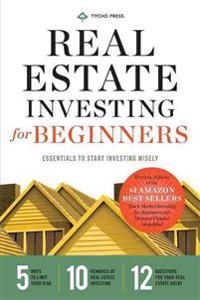The only issue was that the home was no longer on the marketplace! It had been chosen up 2 weeks prior by an investor who was much better at deal analysis than I was. I recognized I required to start honing my abilities and learning what a great deal looked like.
As soon as I had it under contract, I could enter the weeds and find out if it was really a great offer. That's what the due diligence duration is for I was simply previously doing things out of order. When you can analyze deals, begin making deals. Again, take input and recommendations from your team, but you are the ultimate choice maker about Find out more whether something is a great offer or not.
Realtors and brokers make money when they close on a property. Property supervisors earn money when they handle a residential or commercial property. Please don't misread that as me knocking representatives and home managers. I work with an excellent group and have absolutely nothing however fantastic things to state about them all. The point I'm making is that you are ultimately accountable for calling the shots, as you're the one bearing the cost.
There are numerous resources, both paid and free, readily available to help inform people. Do not feel like you're on this journey alone. There are books, podcasts, online forums, meetups, seminars, and training programs (like Roofstock Academy) that are readily offered. Any and all of the above are fantastic locations to start.
Last but not least, if you wish to discover how individuals are utilizing brand-new innovations to purchase markets outside of just their regional location, inspect out this quick video our group assembled:.
What Does Mls Stand For In Real Estate Can Be Fun For Everyone
Purchasing and owning real estate is an investment strategy that can be both satisfying and lucrative. Unlike stock and bond financiers, potential realty owners can utilize leverage to purchase a property by paying a part of the total expense upfront, then settling the balance, plus interest, in time.
This capability to control the asset the moment papers are signed emboldens both realty flippers and property owners, who can, in turn, secure 2nd mortgages on their houses in order to make deposits on extra properties. Here are 5 crucial ways investors can earn money on property.
One of the main ways in which financiers can earn money in realty is to become a property manager of a rental residential or commercial property. People who are flippers, purchasing up underestimated real estate, repairing it up, and selling it, can also earn earnings. Realty investment groups are a more hands-off method to earn money in property.
Owning rental properties can be a fantastic opportunity for individuals with diy (DIY) and renovation abilities, and have the perseverance to handle tenants. However, this technique does need substantial capital to finance up-front maintenance expenses and to cover uninhabited months. Pros Provides routine income and residential or commercial properties can value Maximizes capital through utilize Lots of tax-deductible associated costs Cons Can be tiresome managing tenants Possibly damage property from occupants Minimized income from potential jobs According to U.S.
Subsequently, sales rates resumed their climb, timeshare out even going beyond pre-crisis levels. It remains to be seen what the longterm results of the coronavirus pandemic will be on property worths. Source: Study of Building And Construction, U.S. Census Bureau Real estate financial investment groups (REIGs) are perfect for individuals who want to own rental property without the troubles of running it.
All About How To Get A Real Estate License In California
REIGs are like little shared funds that buy rental residential or Click for source commercial properties. In a typical real estate financial investment group, a business buys or builds a set of home blocks or condos, then permits investors to purchase them through the business, consequently joining the group. A single financier can own one or several systems of self-contained living space, but the business running the financial investment group jointly manages all of the systems, managing upkeep, marketing vacancies, and talking to occupants.
A basic property investment group lease remains in the financier's name, and all of the systems pool a portion of the rent to guard against periodic vacancies - what are cc&rs in real estate. To this end, you'll get some earnings even if your system is empty. As long as the job rate for the pooled units does not surge expensive, there ought to suffice to cover expenses.

Home flipping requires capital and the ability to do, or supervise, repairs as required. This is the proverbial "wild side" of real estate investing. Just as day trading is various from buy-and-hold financiers, realty flippers stand out from buy-and-rent property managers. Case in pointreal estate flippers frequently aim to profitably offer the undervalued homes they purchase in less than six months.
Therefore, the financial investment must currently have the intrinsic worth required to make a profit with no alterations, or they'll eliminate the home from contention. Flippers who are not able to swiftly dump a property may find themselves in difficulty since they normally do not keep sufficient uncommitted cash on hand to pay the home loan on a property over the long term.

There is another sort of flipper who generates income by purchasing reasonably priced residential or commercial properties and including value by refurbishing them. This can be a longer-term financial investment, where investors can only afford to handle a couple of properties at a time - how to make money in real estate with no money. Pros Ties up capital for a shorter period Can offer quick returns Cons Needs a much deeper market knowledge Hot markets cooling unexpectedly A property investment trust (REIT) is best for financiers who desire portfolio direct exposure to genuine estate without a traditional realty transaction.
An Unbiased View of What Is An Easement In Real Estate
REITs are bought and offered on the major exchanges, like any other stock. A corporation must payment 90% of its taxable revenues in the kind of dividends in order to maintain its REIT status. By doing this, REITs prevent paying business income tax, whereas a routine company would be taxed on its earnings and then need to choose whether to distribute its after-tax earnings as dividends (how to make money in real estate with no money).
In comparison to the abovementioned types of realty investment, REITs manage financiers entry into nonresidential financial investments, such as shopping malls or office buildings, that are generally not possible for specific investors to acquire straight. More vital, REITs are highly liquid since they are exchange-traded. In other words, you will not require a realtor and a title transfer to assist you squander your investment.
Finally, when taking a look at REITs, investors ought to compare equity REITs that own structures, and mortgage REITs that offer financing for real estate and meddle mortgage-backed securities (MBS). Both offer exposure to property, however the nature of the direct exposure is various. An equity REIT is more conventional, in that it represents ownership in genuine estate, whereas the mortgage REITs focus on the earnings from home mortgage funding of genuine estate.
The investment is done by means of online property platforms, also referred to as realty crowdfunding. It still needs investing capital, although less than what's required to buy residential or commercial properties outright. Online platforms link financiers who are wanting to finance tasks with property designers. In many cases, you can diversify your investments with not much cash.
And similar to any financial investment, there is earnings and prospective within realty, whether the total market is up or down.